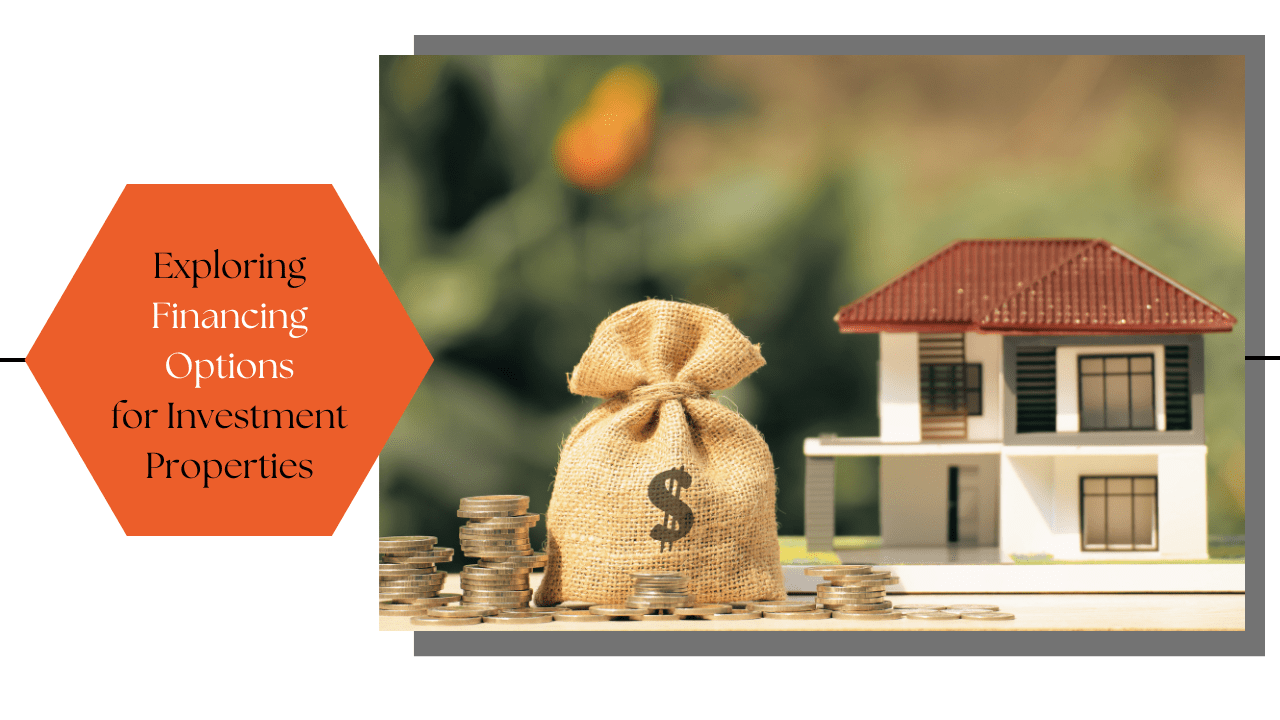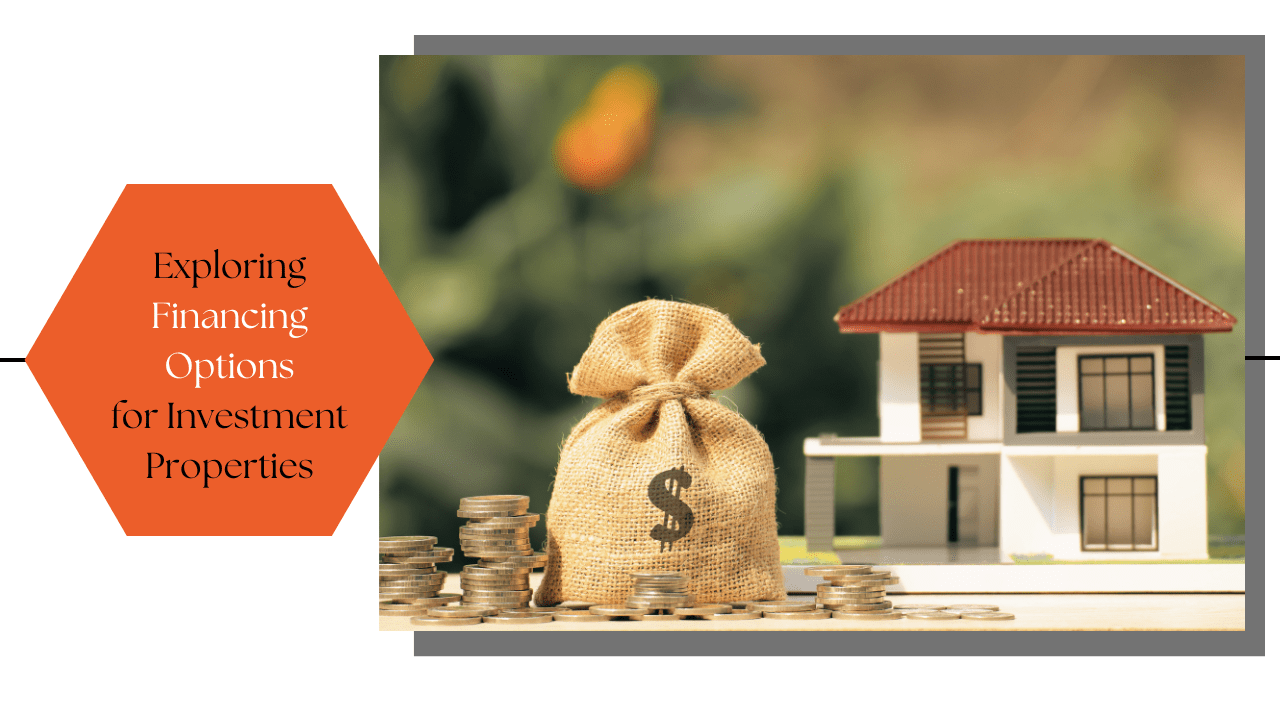
When it comes to financing options for investment properties, real estate investors often find themselves with several options. Ultimately, the best choice for you will depend on your current financial situation, your investment goals, and your pay-back plans. Should you opt for a conventional loan or seek funding from a private lender? Would a hard money loan be better or should you tap into equity that you have in other assets?
All of the options we are preparing to discuss have their own set of advantages and disadvantages that can significantly impact your investment strategy and profitability. Some of these options work for just about everyone. Others will only work if you’re investing in a specific type of property.
Gather some recommendations that speak to your unique circumstances. We’d be happy to provide them when you’re thinking about an investment in Atlanta and wondering where to turn for reliable, low-risk financing.
For now, let’s take a general look at what the options are and how to compare them.
Safe and Serious: The Value of Conventional Loans for Atlanta Real Estate Investors
A conventional loan is a mortgage that is not insured or guaranteed by any government body. These loans are typically offered by banks, credit unions, and other financial institutions. They usually come with competitive interest rates and longer repayment terms. You likely used a conventional loan, or a mortgage, when you bought the home you’re currently living in.
These are the benefits of conventional loans when you’re buying an investment property:
Low Interest Rates
Conventional loans often have lower interest rates compared to private lending options and hard money loans. This, of course, will depend on the market and the economy. In the middle of 2024, we find ourselves with mortgages that are more expensive than usual thanks to higher interest rates. We expect those rates to begin dropping by the end of the year, but right now, even conventional loans are expensive. You may end up refinancing any loan that you take today.
Flexible Repayment Terms
Typical repayment terms range from 15 to 30 years, allowing for smaller monthly payments and more cash flow for investors. While a 15-year mortgage will allow you to pay off the debt sooner, a longer repayment term will often allow you to leverage the money you’ve borrowed for higher profits over the long term. Remember, when you keep your property occupied, it’s essentially your tenants who are paying this loan off.
Transparency and Regulation
Being regulated by federal laws, conventional loans offer a level of transparency that can be reassuring for investors. There’s less risk and more oversight.
There are some drawbacks to conventional loans. For example, standards are high when it comes to qualifying for a loan. Lenders are likely to require a high credit score, a substantial down payment, and extensive documentation that demonstrate you have the income, assets, and debt management skills to present yourself as an acceptable credit risk. There’s also a longer approval process. Underwriters are involved, and you can expect to spend several weeks waiting for final approval.
Private Loans for Real Estate Investments
Private lenders are individuals or companies that provide short-term loans for real estate investments. These lenders are not affiliated with any financial institution and offer more flexible terms. You might find a private lender in a friend or a family member.
The most attractive benefit to a private loan is that you’ll have an easier time qualifying for the loan. Typically, a private lender will have criteria that’s a bit more understanding if your credit isn’t perfect or you don’t meet a specific income threshold. You may not have to come up with a 20 or 25 percent down payment when you’re utilizing the funds of a private lender.
The approval process is also likely to be more efficient. You’ll get funded faster, which means you can be more competitive in the fast-moving Atlanta real estate market. Some private lenders will have the money available to you in a matter of days.
Finally, you’ll get flexible terms for paying back the loan. You can negotiate the timeframe you need as long as the lender agrees to it.
Plan to pay more interest with a private lender than you would with a bank loan or a conventional loan. This loan has to be worth it, financially, to your lender, and the only way they can make money is by collecting interest. There’s also less regulation in this type of loan, so do some extra due diligence to ensure your risk is managed wisely.
Hard Money Loans: When Is this the Best Option?
Another financing option is a hard money loan. These loans are short-term, asset-based loans typically used by real estate investors who intend to pay off the loan quickly, either by selling the property or refinancing into a conventional loan.
Unlike traditional bank loans, which rely heavily on the borrower's creditworthiness, hard money loans are secured by the property itself. This means that the loan approval process is faster, though interest rates tend to be higher.
There are a few scenarios in which a hard money loan makes the most sense for your financing plans:
You Need the Funds Quickly
In the competitive Atlanta real estate market, time is of the essence. If you're eyeing a property that you believe will quickly be snapped up, a hard money loan might be your best option because the quick approval process means you can secure financing in days, not weeks, allowing you to act swiftly and gain an edge over other investors.
You’re Investing in Distressed Properties
Properties in poor condition can be difficult to finance through traditional loans. However, these distressed properties can offer significant potential once renovated. Hard money loans are ideal for such scenarios because they focus on the property's value rather than its current state. This allows you to acquire and rehab the property, increasing its value and your potential return on investment.
You Have Plans to Flip an Atlanta Property
If your investment strategy involves buying, renovating, and quickly selling properties for a profit, hard money loans can be a valuable tool. The short-term nature of these loans is a good match for the timeline of fix-and-flip projects. The speed and flexibility of hard money loans can help you complete projects faster, ultimately boosting your profitability and offsetting the higher interest rates that come with these loans.
Bridge Financing is Necessary
Sometimes, investors need temporary financing to bridge the gap between purchasing a new property and selling an existing one. Hard money loans can serve as bridge financing, providing the funds you need to close a deal without waiting for other transactions to finalize. This is particularly useful for investors looking to expand their portfolios without missing out on opportunities.
You Have Challenged Credit
Traditional lenders often require a strong credit history, which can be a barrier for some investors. Hard money lenders, on the other hand, are more concerned with the property's value and potential. If you have a solid investment opportunity but less-than-perfect credit, a hard money loan can provide the financing you need to move forward. Work hard to get your credit into better condition so that you can refinance into a more affordable loan after a year or two.
Leveraging Equity to Finance an Investment
Equity is the difference between the market value of your property and the amount you owe on your mortgage. For example, if your property is worth $500,000 and you owe $300,000 on your mortgage, your equity in the property is $200,000. If you own a property already, you can access its equity to pay for the purchase of another property.
Using equity to finance an Atlanta investment property offers several advantages:
Lower Interest Rates. Typically, loans secured by property equity have lower interest rates compared to unsecured loans.
You Can Access Large Funds. Equity allows you to access substantial funds that you can use for your next real estate purchase.
Saving Cash. By leveraging equity, you can invest in additional properties without needing a large amount of cash up front.
Tax Benefits. In many cases, the interest paid on equity loans may be tax-deductible. Be sure to consult with a tax professional for details specific to your situation.
When deciding on the financing route you plan to take, consider a few questions:
Is your credit going to be attractive to different lenders?
How quickly do you need your funds?
What is the size of the loan you need?
Are you looking for a long-term investment strategy or are you flipping a property and prepared to pay back the loan quickly?
 Choosing the financing path you take will depend on the answers to these questions and on various factors that are unique to you. As long as you understand what you’re signing up for, you can make smart plans for paying back the loan and earning money on your investment property.
Choosing the financing path you take will depend on the answers to these questions and on various factors that are unique to you. As long as you understand what you’re signing up for, you can make smart plans for paying back the loan and earning money on your investment property.
Let’s talk about your circumstances, your potential acquisition, and how we can help you have a profitable investment experience. Please contact us at Property Services of Atlanta.

 Owner Portal
Owner Portal




